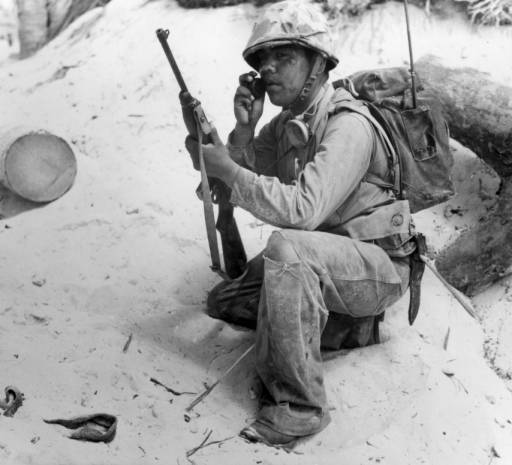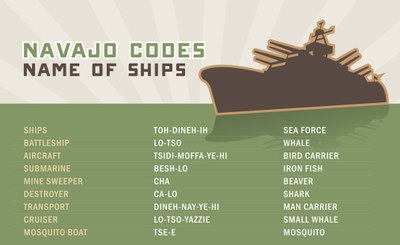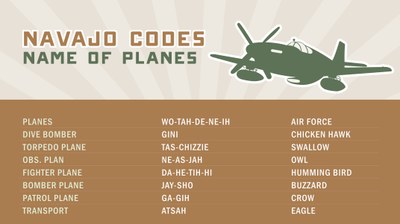"Navajos could encode, transmit, and decode a three-line English message in 20 seconds. Machines of the time required 30 minutes to perform the same job.”
- Navajo Code Talkers: World War II Fact Sheet, U.S. Navy Historical Achieves
"Navajos could encode, transmit, and decode a three-line English message in 20 seconds. Machines of the time required 30 minutes to perform the same job.”
- Navajo Code Talkers: World War II Fact Sheet, U.S. Navy Historical Achieves

Navajo Code Talkers: In formation at Camp Elliott, California 1940. NAU
At this time, the Native Americans were not recognized as citizens under the law. They were seen as settlers on private reservations. So, as a result, Congress passed the Indian Citizenship (Snyder) Law of 1924, making Native American men subject to a draft.
So in April 1942, drafting began on the Navajo Nation. Most natives chose to join the military not to uphold the Constitution, but to protect their homeland. In fact, some lied about their ages to join the army; they were able to because they didn't have birth certificates.

Pfc. Preston Toledo and Pfc. Frank Toledo. circa 1942 CIA

Navajo Code Talker in the South Pacific. 1943. Navajo People.
Following the Pearl Harbor attack on December 7, 1941, the Marines enlisted 30 Navajoes, of whom 29 survived training and would then create the formidable, "unbreakable code". What resulted was a code so complicated that even native Navajo speakers were unable to decode what the messages were.

Name of Ships. 2008. CIA.

Name of Planes. 2008. CIA.
"During the 48 hours while we were landing and consolidating our shore positions I had six Navajo radio signal nets operating around the clock. In that period alone they sent and received 800 messages without a single error."
- Signal Officer S. Barnes of the 5th Marine Division
The war proved that the code created by the Navajo Code Talkers was valuable; Wanting to keep the code a secret in case of future wars, the government told the Navajo Code Talkers to not tell anyone about what they did during the war. It wasn't until 1968, the year the Navajo Code Talking project was declassified, that the families of former Code Talkers knew what their family member actually did during the war.
Although the program was declassified, the Code Talker's achievements went largely unheralded until the year 2001, when most of the Code Talkers had passed.